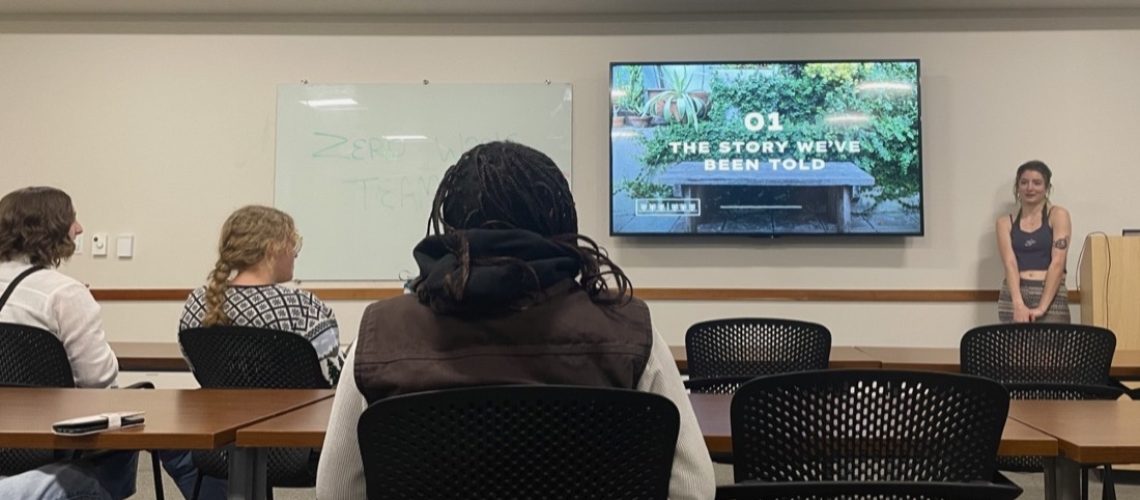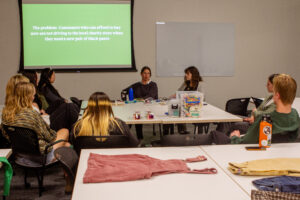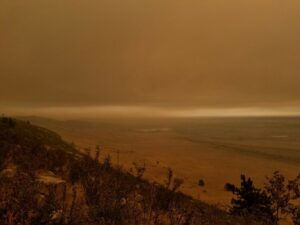Written by Bella Conrad
The Colorado State University Zero Waste Team held its first student-led presentation of the year on February 1 to discuss how ranchers and scientists can collaborate to conserve rangelands. Ashlee Ducharme, a CSU student and member of the Zero Waste Team, spoke about her involvement in a three-year project with the Bureau of Land Management (BLM), which is based in Colorado.
Ducharme’s project with the bureau focused on virtual fencing, which can be a solution for cattle farmers with monetary restrictions to restore grazing land without the strenuous physical labor often required.
Virtual fencing involves using a virtual fence rather than a physical one. The virtual fence is an electrical boundary for cows and other cattle that allows for better rotational grazing in farmlands.
Ducharme explained that this project began to examine if virtual fencing could be efficient in her hometown, Eagle Country, Colorado, due to the topography of the area possibly altering the data connection to the collars, which are similar to electric dog collars but are used on cows to keep them within a certain area.
Though topography is not the only difficult aspect of this project, it can be challenging for the animals and the people to agree.
“The ranchers had to adapt to the animal’s lifestyle,” Ducharme said during her presentation. “There were many confounding variables.”
Ducharme described ranchers distrusting scientists because scientists do not consider ranchers’ perspectives on scientific evidence of land change. Ranchers often distrust the government, too, because government agencies can easily take away their permits. Ducharme emphasized the importance of collaboration.
Many organizations work towards collaboration among farmers and scientists. One of these organizations is AgMission, created by the Foundation for Food and Agriculture and the World Farmers Organization. AgMission implemented a partnership with farmers, ranchers, and scientists to “develop and employ climate-smart solutions on a global scale.”
Ducharme said that climate change will first affect ranchers, and combatting it “would be easier if the scientists and ranchers could work together.”
To reach The Green Bulletin, contact the SSC Content Officer at samanthanordstrom1@gmail.com






